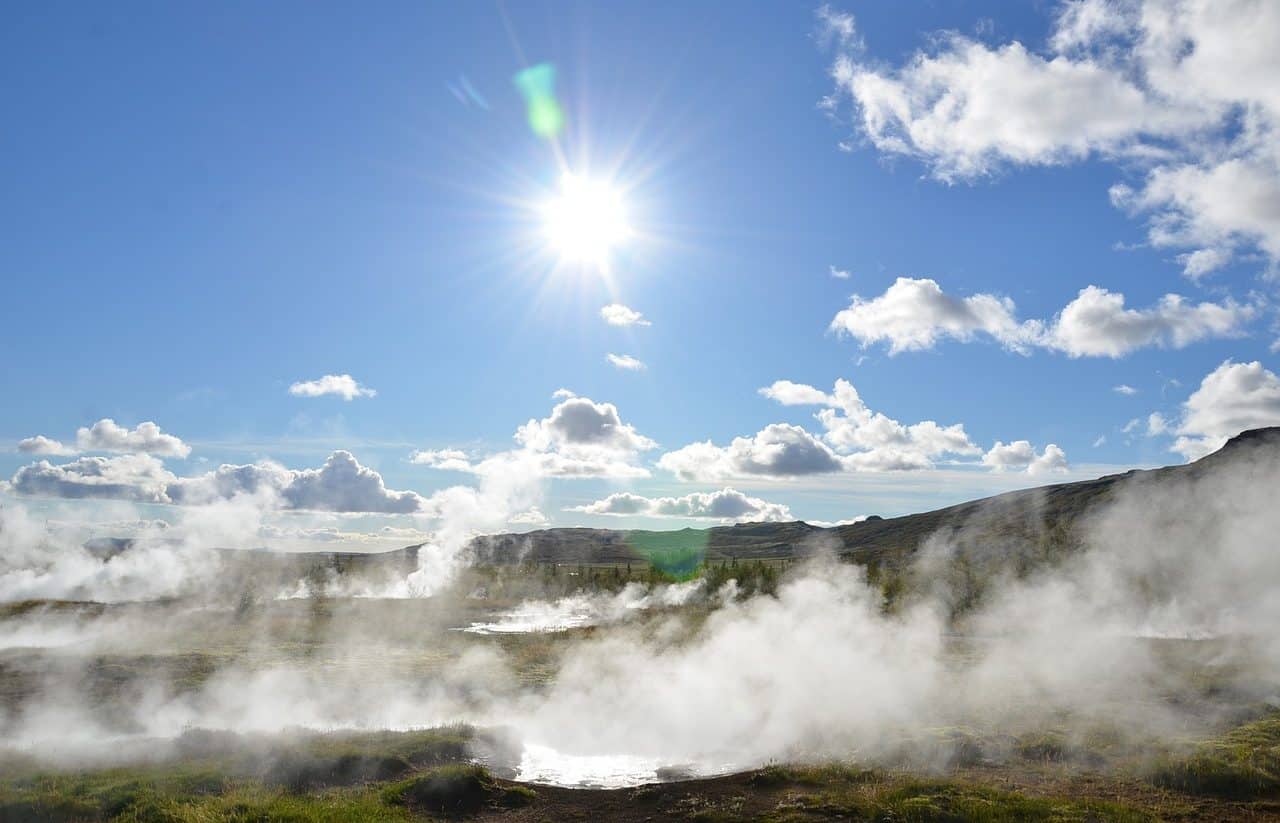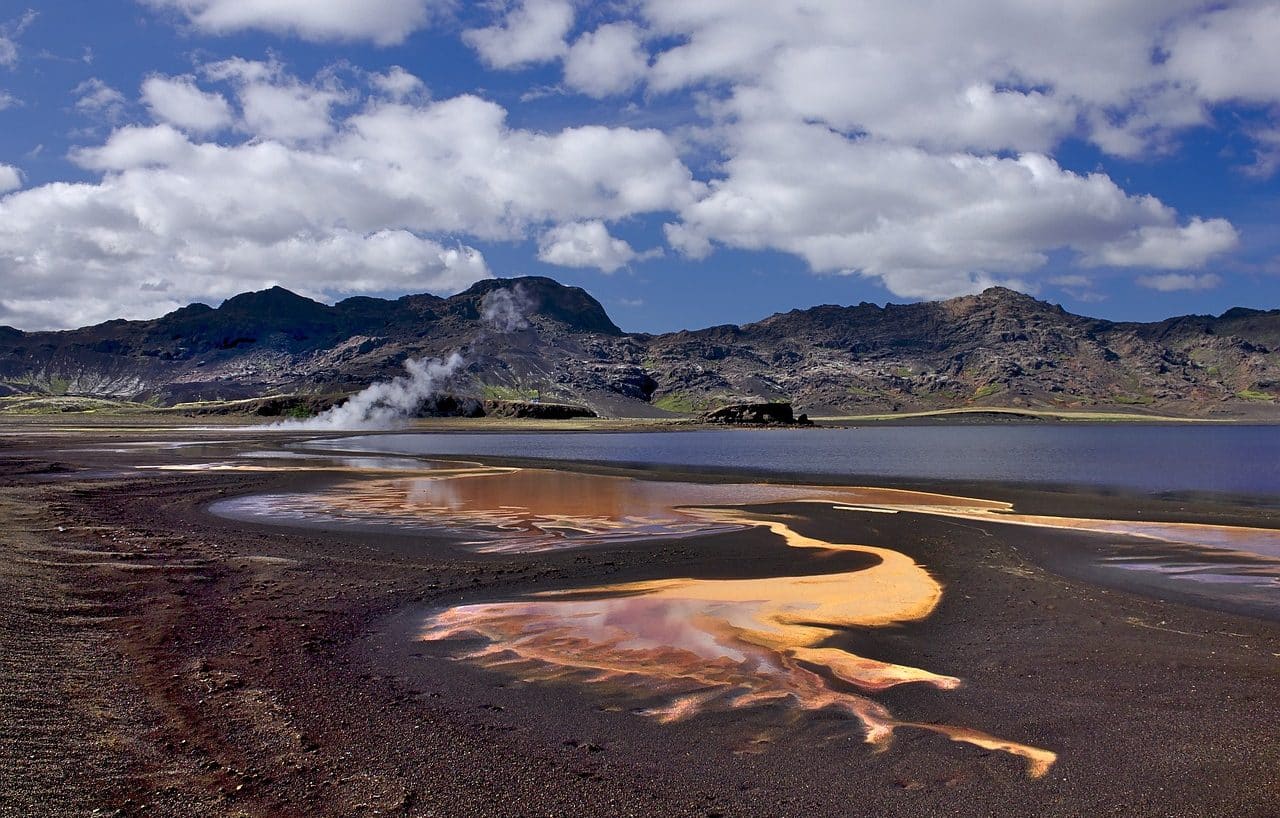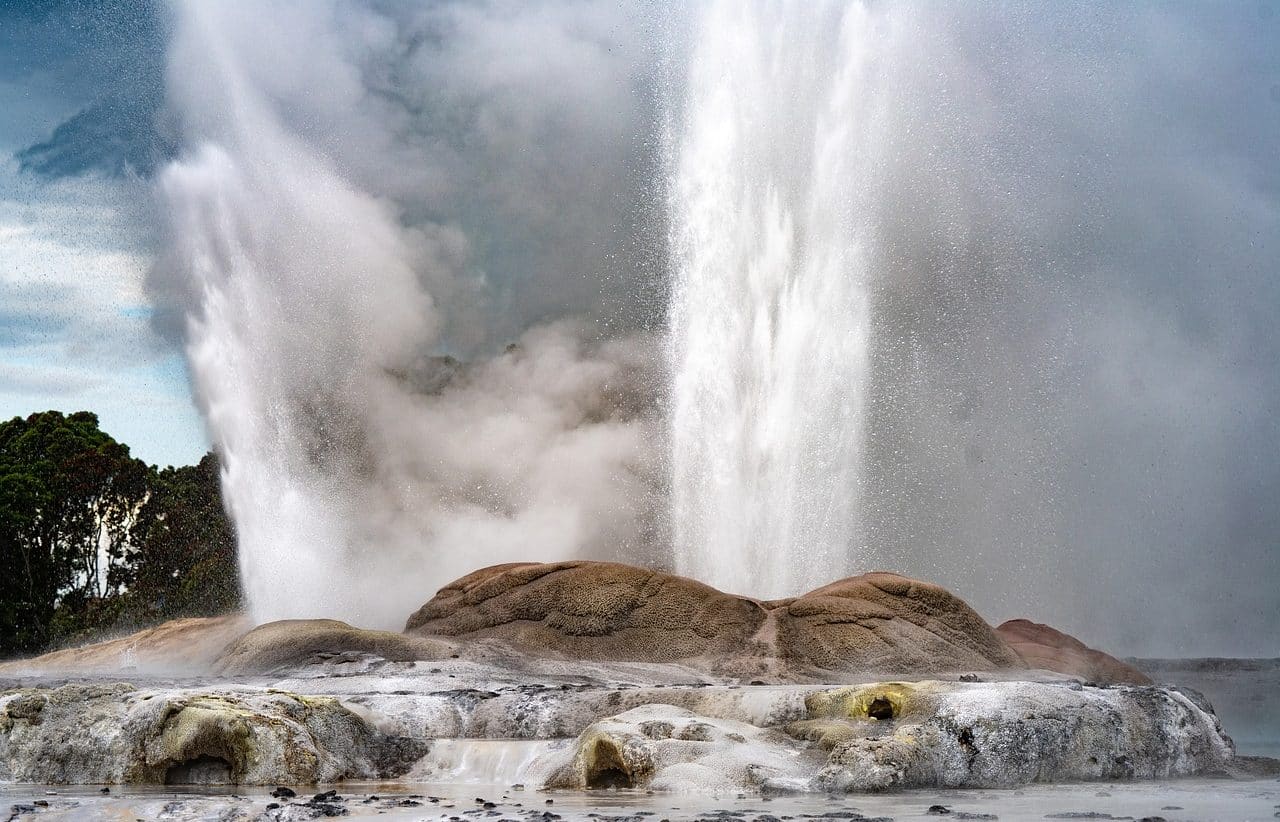
The benefits of geothermal energy led Iceland to allocate resources to the construction of a tunnel to harness magma; Colombia to work to obtain electricity thanks to volcanic heat and in the United States it has motivated a lithium extraction project using geothermal energy.
Geothermal energy is, according to the dictionary of the Royal Spanish Academy (RAE) , a word with two official meanings. On the one hand, it refers to the grouping of internal phenomena of a thermal nature that occur within the terrestrial globe; On the other hand, it identifies the study carried out by scientists regarding geothermal energy, understood and recognized as an energy source .
Experts on this issue point out that the purpose of this discipline is to analyze each reservoir of fluids that are superheated in the depths of the Earth as a result of, for example, some remnant of volcanic heat , an active magma or anomalous geothermal gradients .
Thanks to procedures that allow us to take advantage of the heat coming from the interior of our planet, geothermal energy has increasingly positioned itself as a great source of renewable energy . On Argentine soil, to detail a specific case, the National Mining Code regulates the search, identification and exploitation of hydrothermal deposits .
Geothermal characteristics
Geothermal energy , the name given to renewable energy that arises from taking advantage of the heat contained within the Earth , is characterized by being a sufficiently clean source given that geothermal plants do not cause greenhouse gas emissions . Yes, of course, we must act responsibly when it comes to drilling and using a geothermal field since in that context contamination can occur.
It should be noted that the aforementioned heat is a resource that manages to be transmitted to the surface through magma , minerals and rocks . By applying appropriate geothermal technology , the earth's heat can be used to generate electricity or provide heating to the population.
Nor can we overlook the existence of three major classifications that segment geothermal energy based on water temperature . In this framework, a distinction is made between low, medium and high temperature geothermal energy .
Although its benefits are multiple, unfortunately, at least for the moment, the scope of this type of energy is restricted, with geographical limitations. Furthermore, the start of a project to install and operate a geothermal plant requires a high investment.

Geothermal energy, thanks to its multiple advantages and benefits, is inspiring numerous projects and initiatives to take advantage of the renewable source known as geothermal energy.
Applications
Geothermal energy, a type of energy that is stored naturally within our planet and emanates powerfully every time volcanoes erupt (to detail an easy-to-recognize situation), has various applications.
It is mainly used for cooling and/or heating purposes in homes. If you opt for high-enthalpy geothermal air conditioning, you proceed to install geothermal heat pumps in buildings: in the winter season, these devices use the earth's heat to provide temperature to the property, while in the summer they serve to extract high temperatures. of construction and transfer them to Earth .
This alternative has also proven to be very effective for geothermal desalination . After evaporation and condensation phenomena, seawater ends up converted into fresh water .
It serves, to add other references, for the geothermal drying of different products (grains and industrial inputs, for example), the sterilization of elements and the generation of electricity (in this case the extraction of steam or hot water is used for operation. of geothermal turbines ). In the United States, meanwhile, a plan is being supported to use geothermal energy in pursuit of a lithium extraction project.

Geysers are a type of hot spring from which steam and water frequently emerge at high temperatures.
Advantages of geothermal
As can be seen when analyzing the information that we have been sharing in relation to geothermal energy , there are many advantages that it offers.
First of all, it is an inexhaustible source of energy and its availability is constant. It is also worth highlighting that it does not itself represent a source of pollution since its production does not create polluting waste , and the greenhouse gas emissions associated with it are negligible or even zero.
The infrastructure required does not require too much space and the plants, in addition to being safe and long-lasting, do not require much effort in terms of maintenance.
It is, therefore, a renewable resource that, little by little, is becoming more and more consolidated on a global scale because in the long term it is economically convenient and that it presents a profile in accordance with the guidelines of sustainability .
Although there are many points in favor of geothermal energy, it is necessary to keep in mind that there are still challenges to be resolved regarding this tool (it is essential, specifically, to advance in legal and regulatory frameworks). We must not ignore that when installing geothermal plants (which cannot have any location) risks are faced such as indirectly triggering a source of contamination , a negative impact on the natural environment where the deposit is located due to the transformation that the landscape and the possibility of some microseism occurring as a result of magma cooling from the water that is reinjected into the well.
